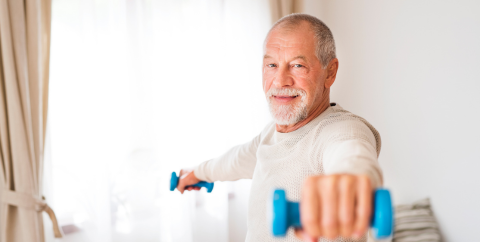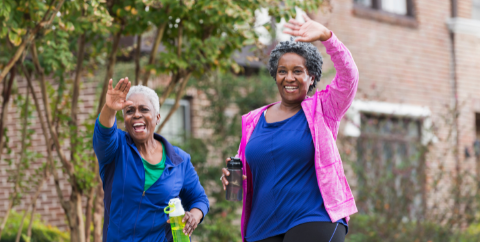Relaxation can lead to better cancer outcomes
08 August, 2022
A cancer diagnosis, cancer treatments and cancer caregiving can all be among the most stressful times in a person’s life. That stress, according to experts at the Mayo Clinic, can have impacts on your body, your mood and your behavior. Some of the impacts include headaches, fatigue, irritability, depression and anxiety, drug or alcohol abuse, angry outbursts and over- or under-eating, to name a few.
None of those changes are beneficial, or likely even welcome, for people who are already facing the physical and emotional challenges of cancer.
Finding ways to relieve stress and to relax are important for people affected by cancer — both survivors and their caregivers. (This might be why yoga, with its physical and mental health benefits, is so often brought up as a healthy practice for people with cancer.)
Health experts at the National Cancer Institute suggest a number of ways to relieve stress, including relaxation and imagery exercises, akin to meditation, with deep, calming breathing and visualization. Researchers in China even found that using breathing and relaxation techniques during chemotherapy, among post-operative breast cancer patients, was shown to reduce anxiety and other adverse effects.
ASCO experts also suggest looking for ways to reduce stress before it has a chance to set in, such as by asking for help, prioritizing tasks, breaking down activities into smaller tasks, and being aware of your limits. Setting aside daily time for relaxation is one of the recommendations they’ve shared for reducing stress once it is felt. Additional activities that can aid in relaxation and stress relief including spending time outdoors, getting exercise, writing in a journal, and scheduling in social time.
There are a number of meditation free apps available that provide guided meditation and relaxation programs, and there are videos on YouTube that do the same.
One simple way to practice breathing and relaxation is through box breathing, a rhythmic breathing practice that can be done any time and anywhere. Visual a box, breathing in, holding, and breathing out around the four sides: inhale for four seconds, hold the breath for four seconds, exhale for four seconds, hold for four seconds. That’s one box. Continue this practice for a set amount of time each day.
Box breathing is so effective at reducing stress it’s even used by Navy SEALs who face some of the most high-stress situations in their daily work!
You May Also Like

Muscle weakness in cancer survivors may be caused by treatable weakness in blood vessels – new research
07.11.2025
Jalees Rehman,

Join a Virtual Research Study to Support Cancer Survivors' Physical Activity
02.19.2025
Are you a cancer survivor looking to stay active and healthy?

Regular exercise can help survivors feel better, reduce medical needs
11.11.2024
A recent study published in “Oncology Issues” sheds light on how exerci